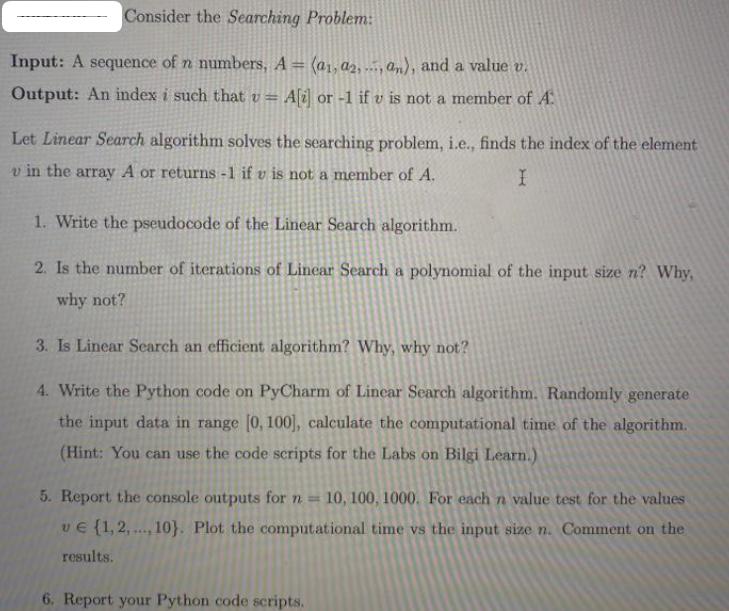Answered step by step
Verified Expert Solution
Question
1 Approved Answer
Consider the Searching Problem: Input: A sequence of n numbers, A = (a, a2,, an), and a value v. Output: An index i such

Consider the Searching Problem: Input: A sequence of n numbers, A = (a, a2,, an), and a value v. Output: An index i such that v = A[i] or -1 if v is not a member of A Let Linear Search algorithm solves the searching problem, i.e., finds the index of the element v in the array A or returns -1 if v is not a member of A. I 1. Write the pseudocode of the Linear Search algorithm. 2. Is the number of iterations of Linear Search a polynomial of the input size n? Why, why not? 3. Is Linear Search an efficient algorithm? Why, why not? 4. Write the Python code on PyCharm of Linear Search algorithm. Randomly generate the input data in range [0, 100], calculate the computational time of the algorithm. (Hint: You can use the code scripts for the Labs on Bilgi Learn.) 5. Report the console outputs for n = 10, 100, 1000. For each n value test for the values v {1, 2, ..., 10). Plot the computational time vs the input size n. Comment on the results. 6. Report your Python code scripts.
Step by Step Solution
There are 3 Steps involved in it
Step: 1
1 Write the pseudocode of the Linear Search ...
Get Instant Access to Expert-Tailored Solutions
See step-by-step solutions with expert insights and AI powered tools for academic success
Step: 2

Step: 3

Ace Your Homework with AI
Get the answers you need in no time with our AI-driven, step-by-step assistance
Get Started


